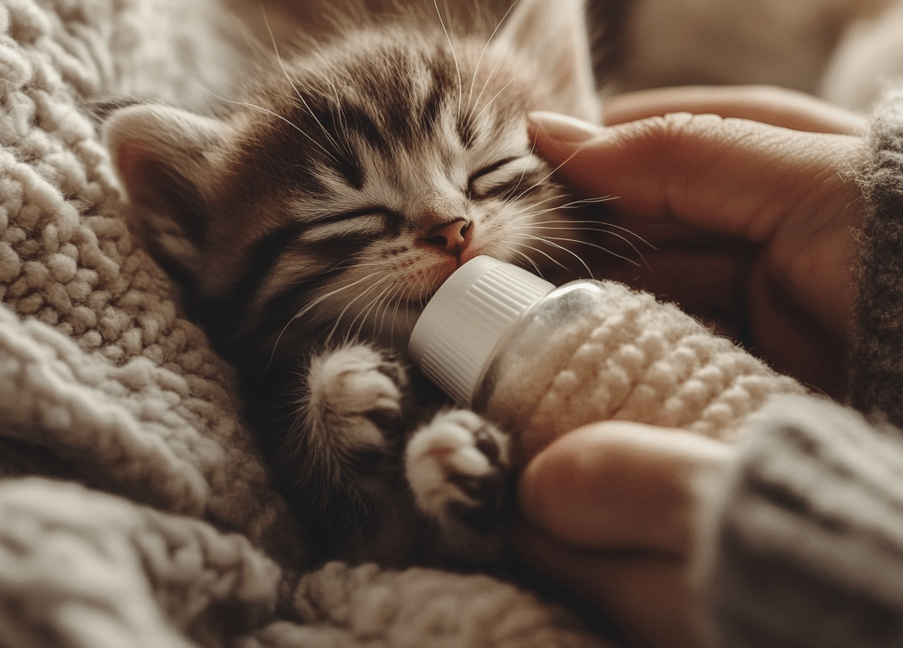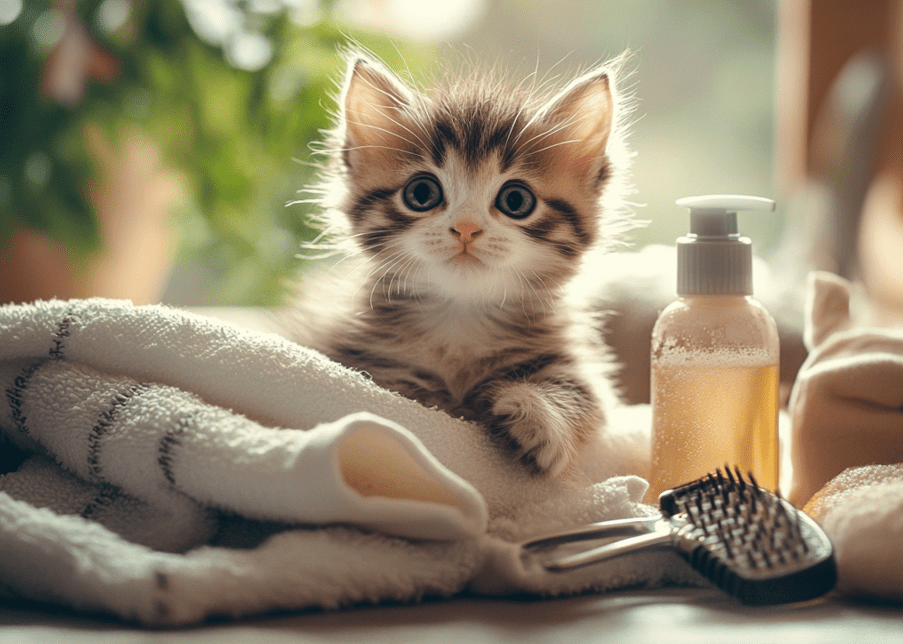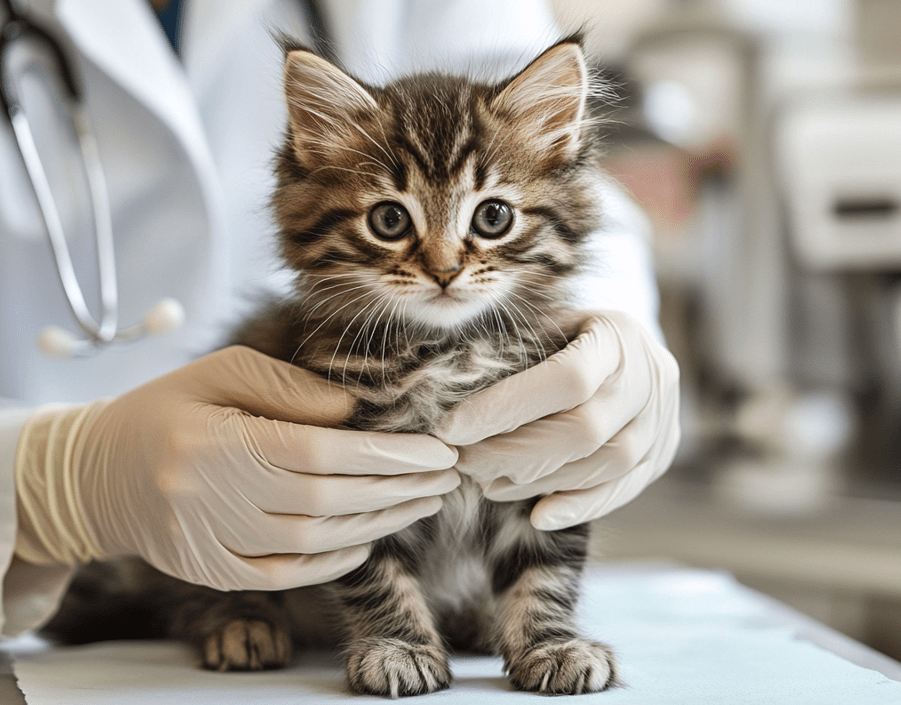
Your new kitten deserves the best start in life, which also means providing everything she needs to grow and stay healthy! The necessity for kitten vaccines is to protect our kittens from getting sick and to prevent the spread of disease. Included are the vaccines your kitten might necessitate and a kitten vaccine schedule that most veterinarians recommend.
Why Vaccinate Your Kitten?
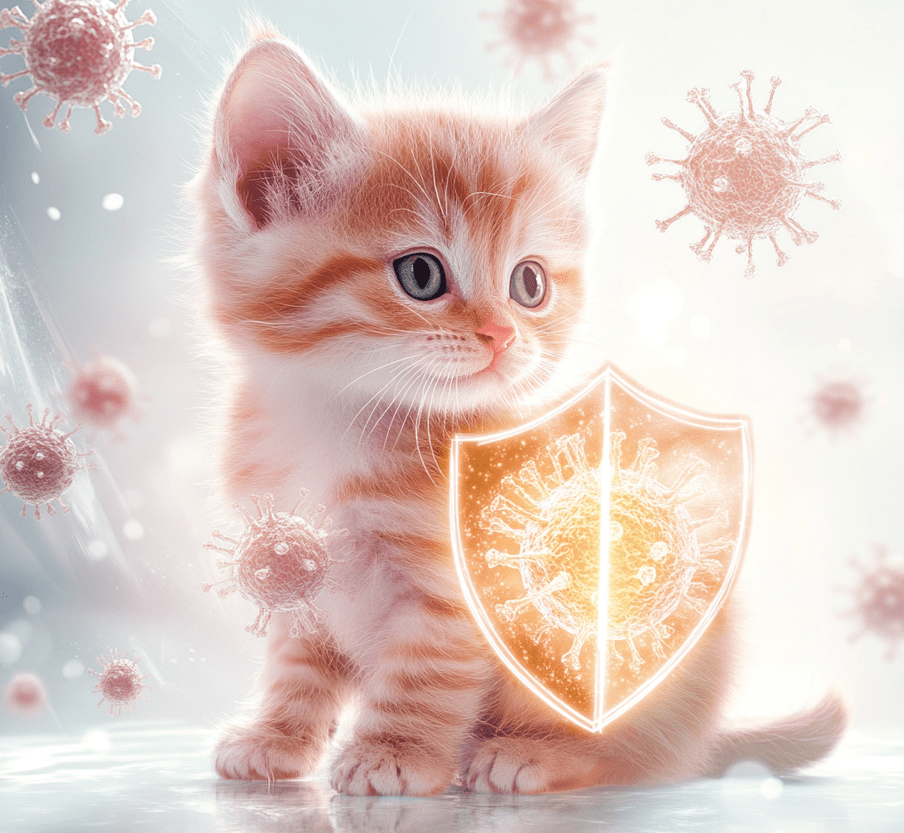
Kittens are vaccinated to prevent certain serious diseases. Vaccines basically act as protection against a particular pathogen and protect against disease caused by that pathogen in the future.
Kittens are born with poorly developed immune systems and they do not become effective at fighting off infections until sometime around 12 weeks. However, nursing mamas offer their newborn kittens this immunity by feeding them colostrum-full milk. The duration of this immunity mask varies from kitten to kitten, but maternal antibodies usually quit working in numerous weeks.
Unfortunately, it is impossible to predict when exactly a kitten may be susceptible to a particular pathogen. Veterinarians interact with parasite prevention by providing strategic vaccination to protect kittens from disease.
This is a good thing because the vaccine injection itself doesn’t hurt that much. It feels like a small pinch or sting to your kitten but many hardly seem to notice it. And, as the experience often includes treats or toys, many vets will do this to help distract the kitten and make it a more enjoyable one.
Core vs. Non-Core Vaccines for Kittens
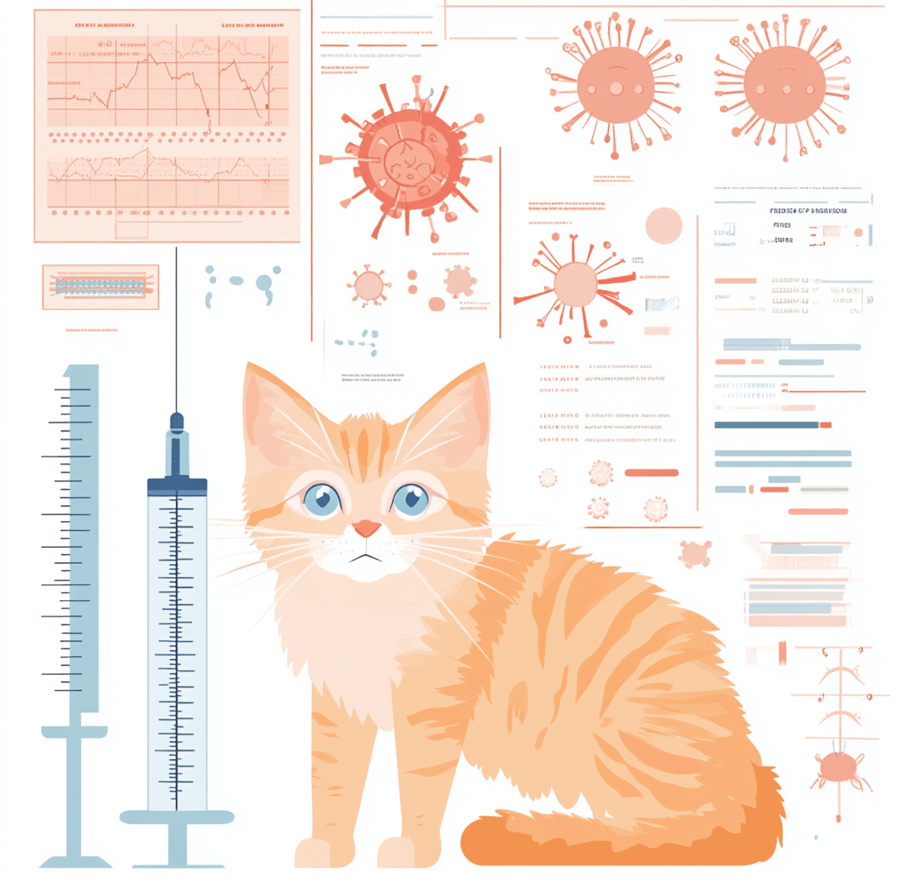
Some vaccines produce viable immunity to the most common and noxious diseases. These are the core vaccines that veterinarians say every kitten and adult cat needs, no matter their lifestyle or location.
All kittens (and most adult cats) should be given the non-core vaccines as their risk for exposure to these is highest in this first year of life and cats are “well equipped” to react against challenges by these diseases. Non-core vaccines will be those your veterinarian can assist you in the decision making as to whether they are appropriate for your kitten.
How many kitten vaccinations are needed?
For kittens, a series of vaccines is given 8 to 12 weeks apart starting when they are between 6 and 8 weeks old. Some vaccines require boosters about three to four weeks apart until 16-20 weeks.
The main parts of your kitten’s first vet visit will be its vaccine schedule, as well as instruction on other preventative medications (deworming and starting parasite prevention). Three or more more vaccines can be given in a single injection.
At the initial vaccine visit your vet will perform an exam prior to vaccinating your kitten. However, vaccines should never be used in kittens with a fever or other illness because the vaccine will not activate properly. But vaccinating a sick kitten can make him sicker.
Vaccination to have an effect, the previous seven to 10 days usually needs new vaccination in three to four weeks. Vaccines will not protect kittens with maternal immunity against that disease. We have no way to know if a kitten still has maternal antibodies so boosters are needed. Complete immunity is not likely until around 16-18 weeks of age or until the series of kitten distemper boosters are finished. No interaction with unfamiliar animals before the completion of all vaccinations
When Do Kittens Get Vaccinated?
Kittens are vaccinated in a series, 8-12 weeks apart starting at between 6- 8 weeks of age. Some of the vaccines are given in boosters that are three to four weeks apart until about 16 to 20 weeks of age.
Your veterinary team will talk to you about a vaccination schedule and other treatments (like deworming and starting your kitten on parasite prevention) at your kitten’s first visit. Multiple vaccines can also be given in a single shot, such as what is known as a combination vaccine.
Your kitten will be examined by your veterinarian before being vaccinated at the first vaccine visit. No kitten with a fever or illness should have vaccines as the vaccine will not work, anyway. If you give a still-sick kitten a vaccine, she can feel even more miserable.
Vaccines take 7-10 days to become protective and some require a booster shot in three to four weeks. But if kittens still have maternal antibodies for that disease, they may not be affected by the vaccine. There is no way to know if a kitten has maternal antibodies. So a booster dose is required. The hard truth is that real immunity doesn’t kick in until around 16 – 18 weeks, after all kitten boosters are done. Then, refrain from exposing your kitten to unfamiliar animals until after all vaccinations have been administered.
Types of Vaccines for Kittens
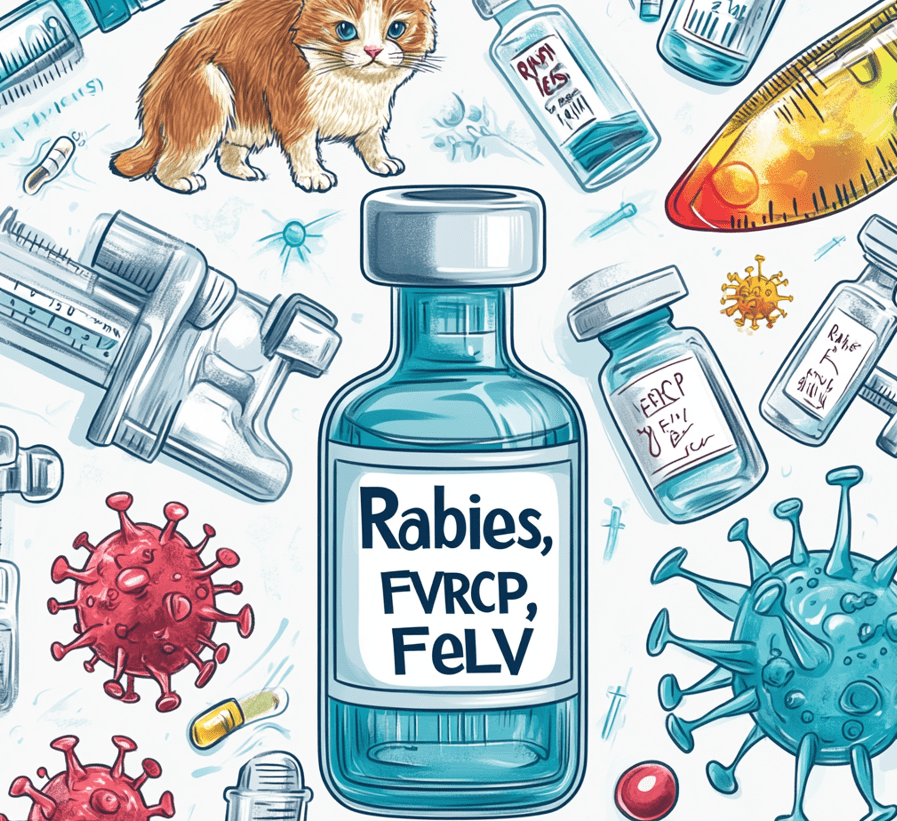
Rabies
Here are some facts you should know about rabies. Rabies is a virus that infects both humans and cats. This is a core vaccine and by law in most states because of how deadly this disease is. All types of kittens can be given the rabies vaccine and all kittens should be given the rabies vaccine.
This vaccine is generally given at 16 weeks and repeated annually or every three years.
FVRCP
FVRCP is shorthand for feline viral rhinotracheitis, calicivirus and panleukopenia. Typically called a core vaccine, this generally is considered crucial for all kittens; it typically is given at 6 to 8 weeks of age, then every three to four weeks until about 16 weeks of age.
The words calicivirus and rhinotracheitis are household names to most cat owners because they are common feline viruses that cause upper respiratory infections. Obviously, prevention of feline distemper is preferable to treatment because once the cat has contracted it there are no specific treatments and depending on the status will probably die which could be a natural selection.
FeLV
Vaccines for feline leukemia virus (FeLV) are regarded in a similar way. Non-core vaccine for adult cats but core vaccine for kittens less than 1 year of age.. The vaccine booster is given to adult cats that are going to spend a lot of time outside. Most kittens are given an initial FeLV vaccine between 9 and 11 weeks several week booster.
Cats are among the most commonly infected with feline leukemia. It is more commonly spread through social contact with these cats. In cats, FeLV can contribute to both cancers and immune suppression syndromes.
FIV
FIV — feline immunodeficiency virus, the most prevalent cat virus spread via bite wounds. It was non-core and only for those cats at very high risk of exposure to FIV. While a good many FIV-positive cats lead normal lifespans, those that do not will experience a great number of illnesses as the result of immune system malfunction.
An Example of Kitten Vaccine Schedule
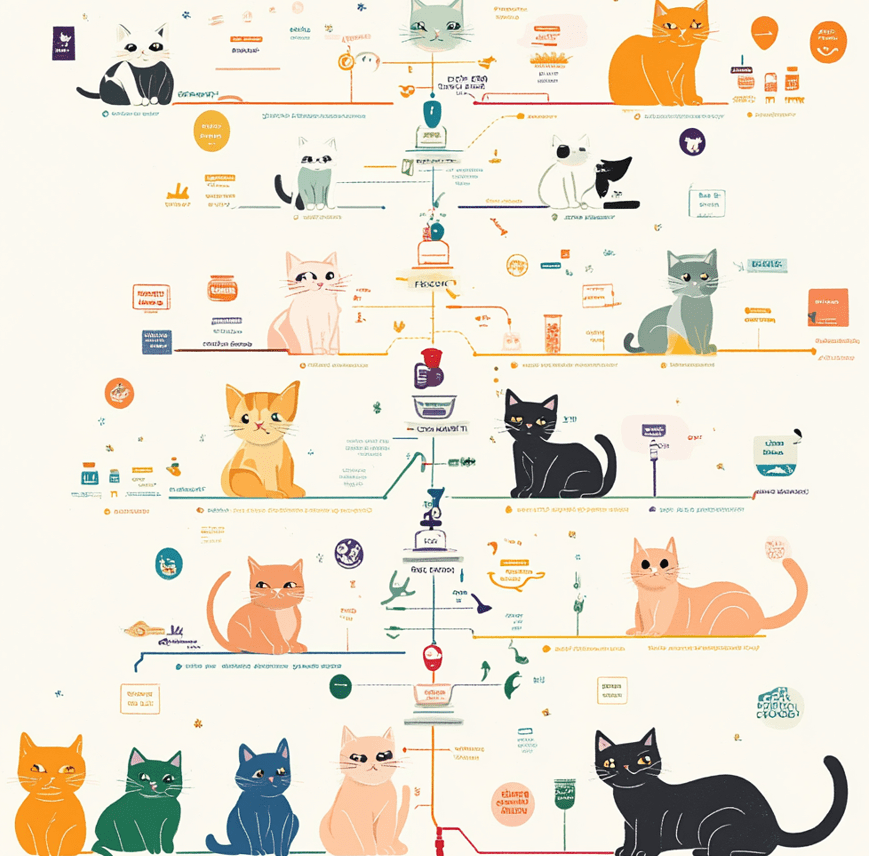
| Age | Core Vaccines | Other Possible Procedures |
| 6-8 weeks | FVRCP | deworm, FeLV/FIV test |
| 9-11 weeks | FVRCP booster, FeLV | deworm, begin heartworm/flea prevention |
| 12-15 weeks | FVRCP booster, FeLV | deworm |
| 16-20 weeks | FVRCP final booster, Rabies | fecal exam, FeLV/FIV test |
Each veterinarian has a set order of extra steps he wants to take, and what to test for how frequently. Consult your vet on what the appropriate schedule for this might be in your kitten.
Risks of Vaccines
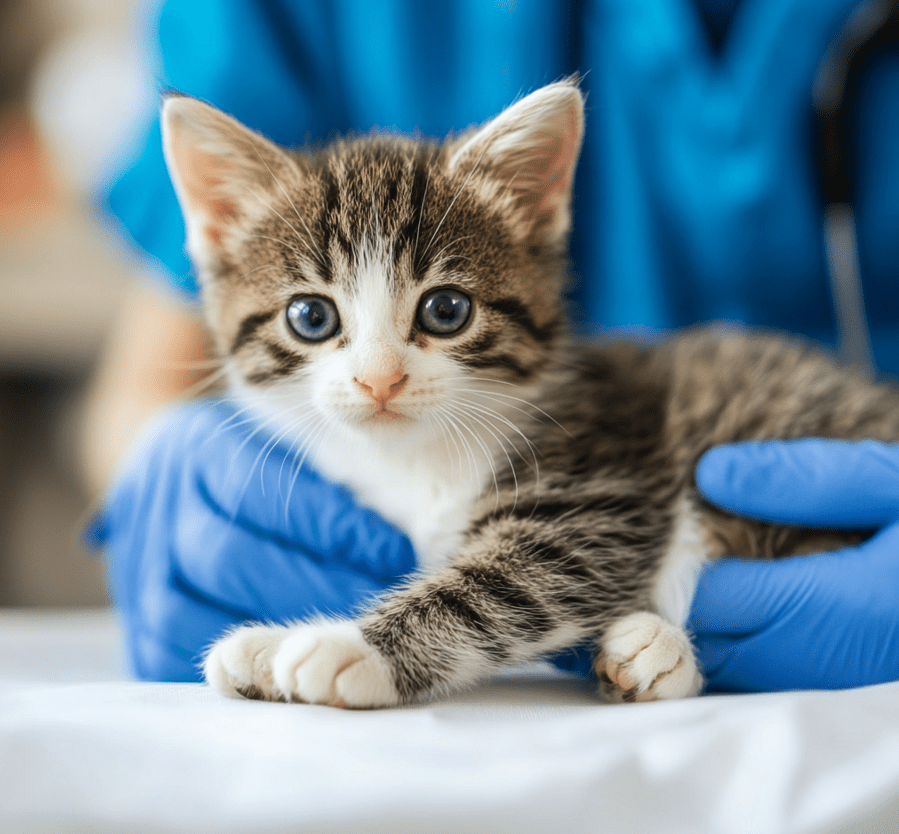
The good news is that although vaccinations are not without their risks, the complications are few and far between. Most vaccine reactions and side effects are mild, and some will go away on their own. This may lead to symptoms such as pain and swelling in the vaccinated area, exhaustion or a low fever.
Allergic Reactions
Not all cats can be vaccinated, priming some to an allergic reaction in response to ingredients within the vaccine. Severe allergic reactions are rare, yet react based on their seriousness if they occur. If your kitten has an allergic reaction with hives, facial swelling, vomiting, diarrhea or difficulty breathing you should head to the nearest open vet right away. Mild reactions may spontaneously resolve, but check with your veterinarian just in case.
Injection Site Tumors
Vaccination by injection causes a type of tumor in kittens. These types of tumors are called feline injection site sarcoma. This type of tumor is very rare and their formation is not fully understood. A smallish knot at a vaccination site usually falls into the same category as what we see with the kittens, but any mass that is more than two centimeters in size or larger than that and persisting for six weeks should be evaluated by your veterinarian. Now they often give vaccines low on the legs (black line at level of below elbow/knee) so when a tumor does develop, you can amputate.
Immune-Mediated Conditions
Since vaccinations do waylay the immune process, there can be a smaller chance of an autoimmune disorder. 4 This is incredibly rare given the numbers of pets that are affected, compared to the number of vaccinated animals. But autoimmune conditions can be severe and are hard to treat. Conditions that can develop include blood disorders, neuromuscular problems or impaired skin.
Risks vs. Benefits
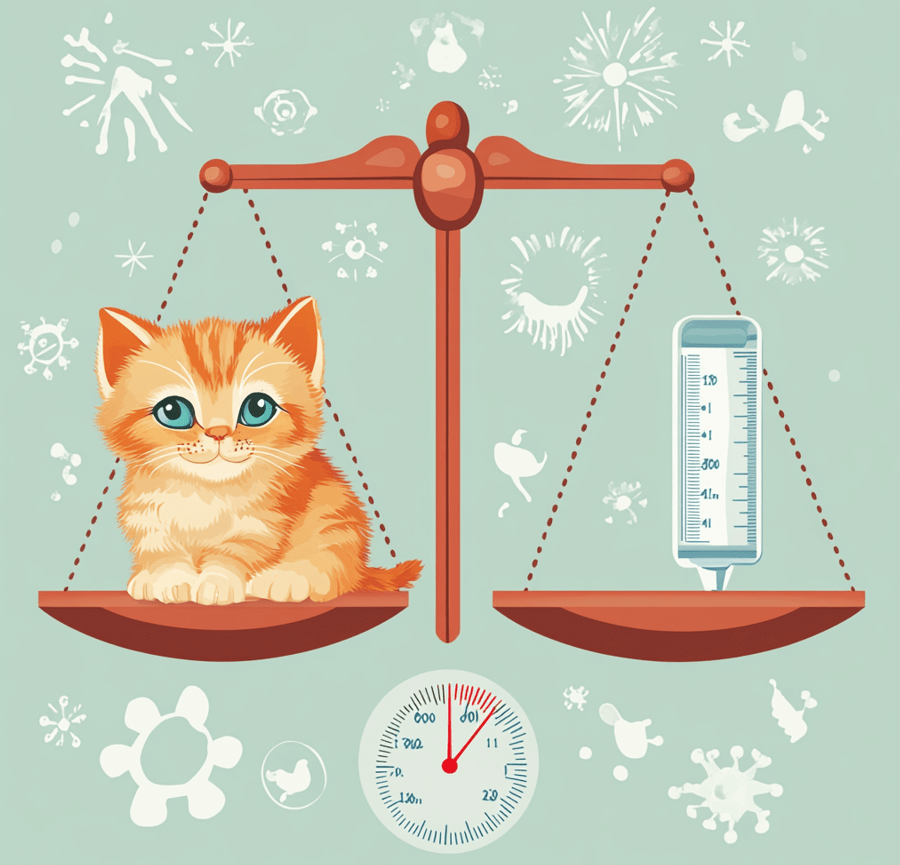
The benefits vs. the risks of vaccines, and that vets or animal experts in general feel usually outweighs whatever risk there is especially for younger animals. For adult cat vaccines, fewer and fewer veterinarians are following vaccine protocols that require them to re-vaccinate annually. Most adult vaccinations that were once administered annually are just as likely to be recommended every three years. Of course, regular vet visits are still very important for preventative care and recommended annually.



